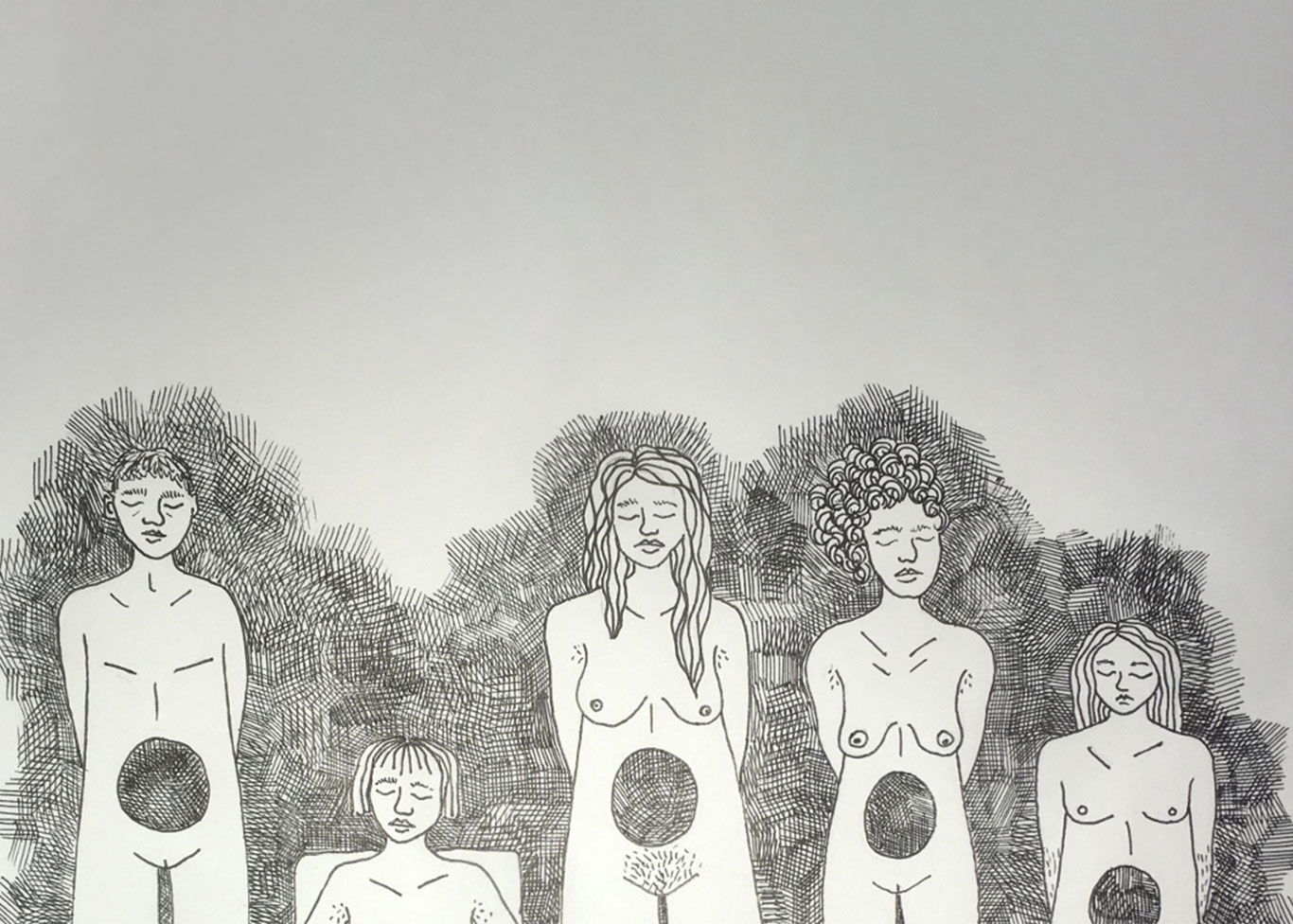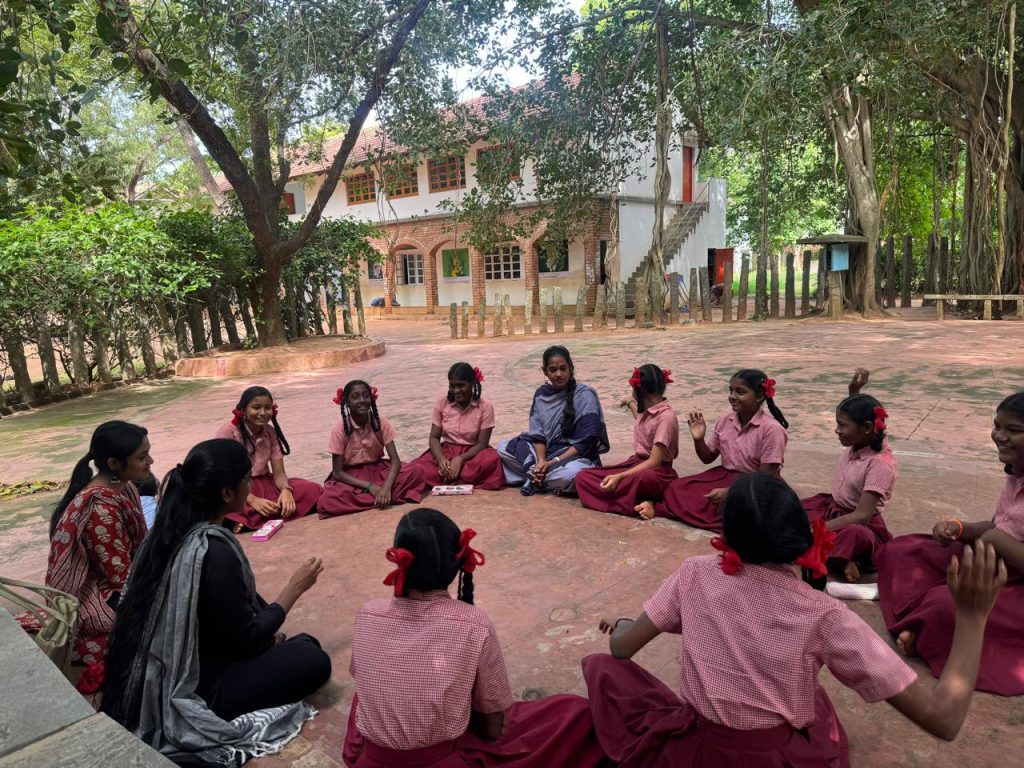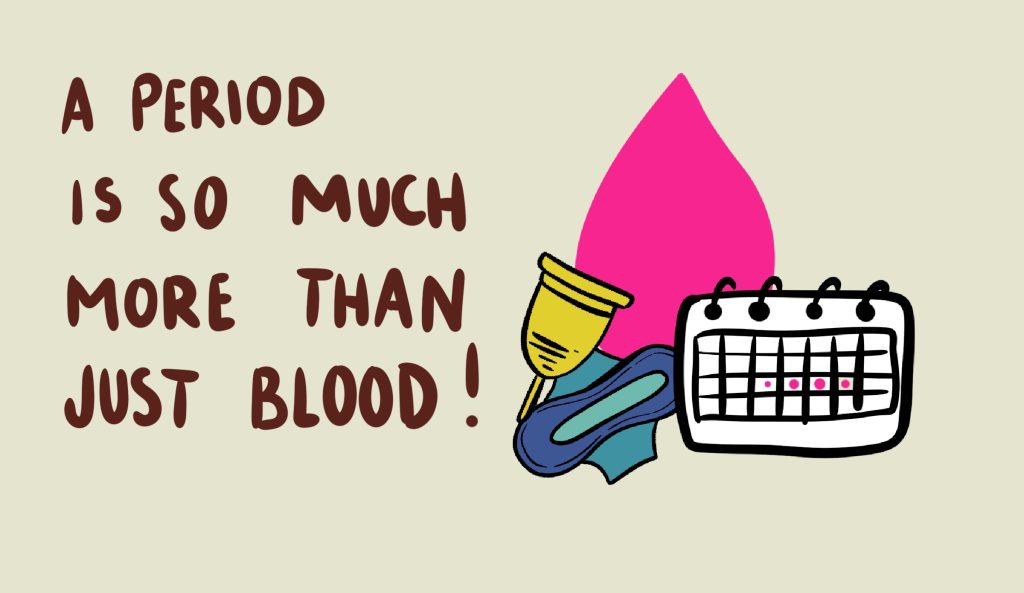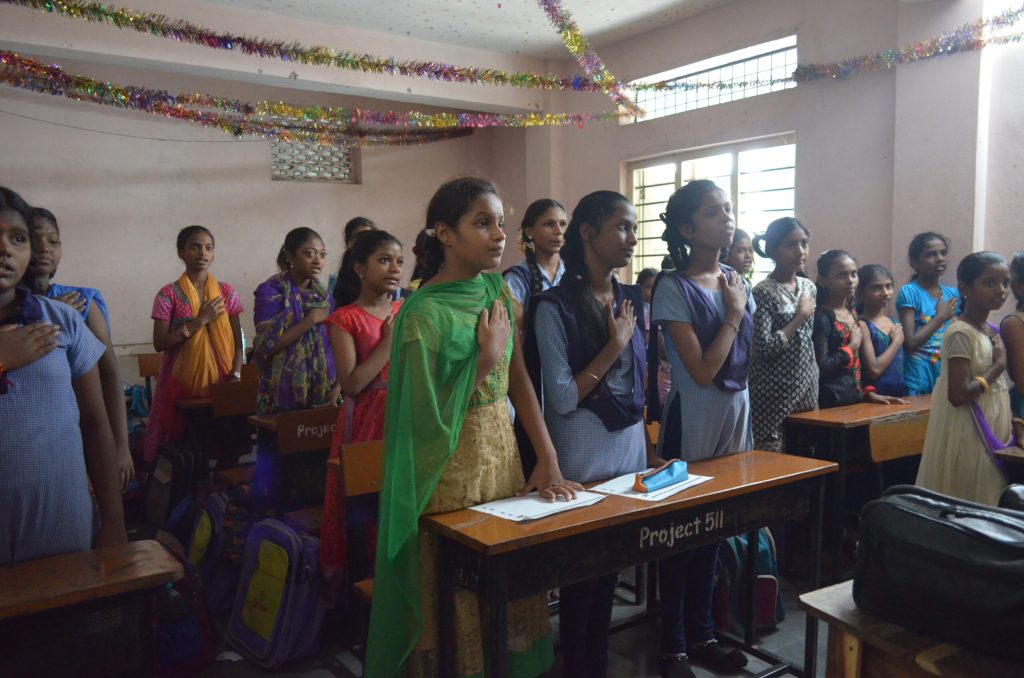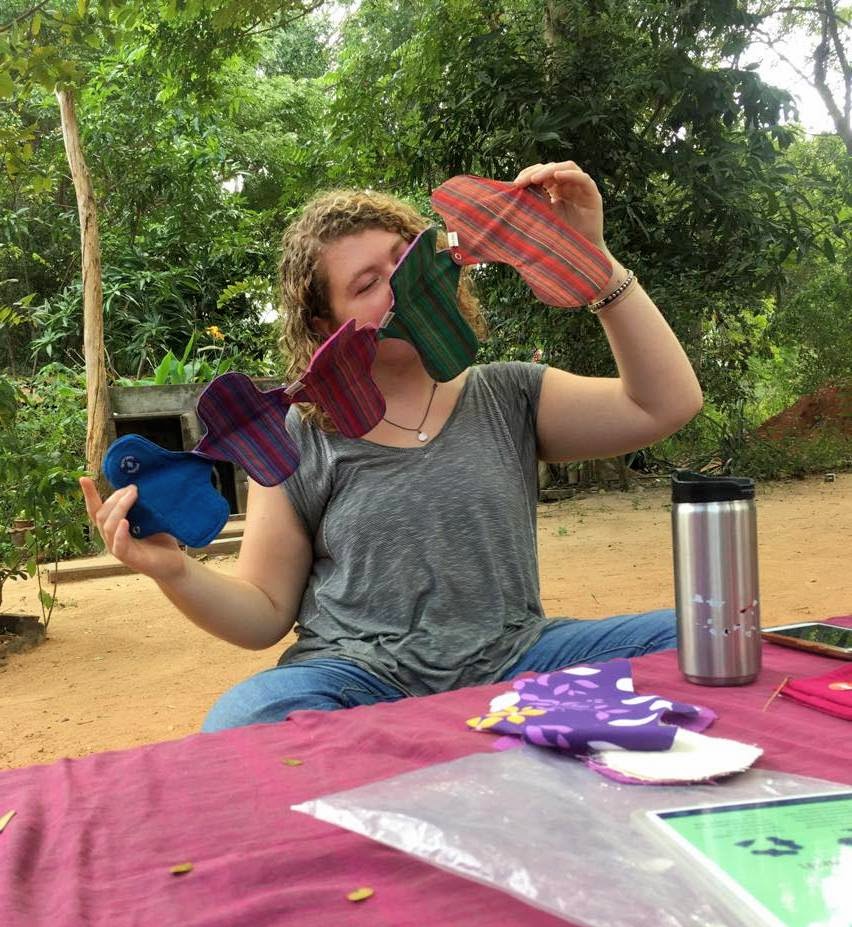“It is important to examine the language we use, or the language that we have been forbidden to use, and question how it is instrumental in constructing how we think about our body and self….When we don’t talk about menstruation, when we emphasise the importance of hiding it, we reinforce that it is shameful. Anna Hyde explores this topic further.”
Having recently made the switch to Eco Femme’s reusable cloth pads I have discovered an unforeseen advantage over disposable menstrual products; I am no longer confronted with the ‘feminine care’ aisle at the pharmacy. In this aisle, with the perfect little pink packets, the reality of period shame in the modern world is reflected back to us, in the words that are used and the words that are absent.
Globally, menstruation is shrouded in a historical silence. Spoken about in lowered voices, the female* reproductive cycle is reinforced as being taboo: dirty, embarrassing and something that should be kept hidden. It is in this silence that a lethal shame is nourished. 
In India, we see these taboos woven tightly into the fabric of society. In some areas, menstruating bodies are defined as impure or poisonous whilst they bleed and are prohibited from entering temples, mosques and gurudwaras. Time taken out of school and banishment from the kitchen or from the house is not uncommon. We need look no further than Vijaya to see the price that some girls pay in India for their menstruating bodies; a twelve year old banished to a rickety shelter and killed by cyclone. We have all heard the horror stories; (1)
[In India] 66% of girls are unaware of menstruation before their first period; 70% of mothers think periods are dirty; 66% of girls and women manage periods without toilets. (2)
This is why I believe Eco Femme’s Pad for Pad programme is so crucial. When we allow myths to supplant education we are failing the girls who have to experience menstruation for the first time without proper understanding of what is happening to their bodies. It is scary and painful and they suffocate with the silence that they are taught to hold. We are failing those who are left to wonder; does irregularity means something is wrong? How much pain is too much pain? Why is the blood dark or clotted? Furthermore, when society fails to teach its’ people the language of the body, it feeds unnecessary infections. According to Wateraid India, 88% of menstruating girls and women across rural and urban India are using unsafe materials leading to a high risk of infection. If a word is banished from conversation how can one ask for advice in the doctor’s office? (3) Faltering at ‘vagina’ and reaching for the word ‘stomach’ instead avoids embarrassment but results in a mis-diagnosis.
The silence surrounding menstruation does not come from a inherent squeamishness around bodily functions. In this silence we can see blatant misogyny reflected back, for it reinforces the idea that within the female body there is an inherent weakness. We see this rhetoric reflected in the most ‘sacred’ of texts where the natural cycles of the menstruating body is othered; in the Bible menstruation is impure, in the Quran menstruating bodies must be avoided until ‘clean’. A tapestry of shame has been woven throughout history, designed to undermine and disable. These stories tell girls that they are a ‘woman now’, but far from freeing, this identification only furthers the rules of ‘right’ and ‘wrong,’ throwing them further into a patriarchal system of oppression. Bound from birth to a fate of impurity the female body becomes abject. Looking back, we can see generations of women with shame filled holes that whisper diseased truths.

The language we use around the menstrual cycle exemplifies how menstruation is made to appear separate from the body. Euphemisms comes in handy when skirting around the uncomfortable inconvenient female body; in India you might hear ‘chums’, ‘Aunt Flo’ or ‘riding the crimson wave.’ They have become so ingrained in language that it is difficult not to use them when discussing the menstruating body, ‘period’ for example:
 ‘Rooted in the Greek words ‘peri’ and ‘hodos’ (periodos) meaning ‘around’ and ‘way/path.’ This eventually turned into the Latin ‘periodus’ meaning ‘recurring cycle.’ (4)
‘Rooted in the Greek words ‘peri’ and ‘hodos’ (periodos) meaning ‘around’ and ‘way/path.’ This eventually turned into the Latin ‘periodus’ meaning ‘recurring cycle.’ (4)
A long history of stigma weighs on the word ‘menstruation’. To avoid this tension we cross our legs and use a sprinkle of descriptive words that threaten no evocation of power, vulgarity or gender politics.

If we step back into the pharmacy for a moment, we can witness such linguistic maneuvers. There is no mention of vagina or uterus on the pristine packages of sanitary products and menstrual blood is represented as a sterile blue liquid. The word ‘sanitary’ itself, suggests the blood and nutrients, which enable new life, are toxic chemicals in need of careful disposal. The marketing of many feminine hygiene products emphasises discreteness and ‘odour free’ options, no one need ever know you are on your period. When we don’t talk about menstruation, when we emphasise the importance of hiding it, we reinforce that it is shameful. That is not to say that to be unashamed you must wear your menstruation on your sleeve; free-bleeding worked fabulously for Kiran Gandhi (5), but it’s not for everyone. It is important however, to examine the language we use, or the language that we have been forbidden to use, and question how it is instrumental in constructing how we think about our body and self.
Considering the euphemisms which replace the ‘dangerous’ words vagina, uterus and menstrual blood, it is clear that the rhetoric that we use around menstruation does more than reflect the misogyny at the heart of the culture; it exposes the distance that we have created from our own bodies. When I think about the way that I characterise my period in relation to my sense of self, I see it as a disruption. My ‘period’ is exactly that, a measurement of time that will come and then will be gone but does not exist within the ‘normal’ constant. Common expressions such as ‘my period came today’ or, my least favorite ‘the painters are in’ suggests that the body is happening to the self. Yet, when I think more generally about the shared female experience, menstruation is certainly at the heart of it. Bobel describes the danger of abjecting from the self an integral part of the female experience;
‘When people don’t know their bodies, their bodies become a less likely source of power and pleasure.’
When we use language (6) that fragments the intersection of menstruation and identity, it reinforces a learnt shame and undermines the female body as the source of power that it is.
When I visited the Eco Femme offices what stuck with me was their emphasis on the importance of knowing your own body. They are educating away past anxieties and fears of the female reproductive system by teaching how to track moods, fertility and discharge. Through menstrual charts, whether it be on paper or an app, we can begin to understand the language of the body. In doing so we can obtain a clearer understanding of the menstrual cycle and begin to conceptualise menstruation as a constant state of ‘normal’. They are dispelling the inherited shame by gently showing how there are safer practices to handling menstruation than the ones shrouded in taboo. When it is shamed and hidden, menstruation is a harmful force which promotes inequality.
When reclaimed through education and a language of empowerment, menstruation becomes a resource for power, a power which is harnessed through unashamedly celebrating and taking control of the health of our own body.
![]()
Anna Hyde is a volunteer with The Salaam Baalak Trust in Delhi, an NGO which shelters and educates street children and working children. She is currently assisting menstrual hygiene workshops as well as facilitating sexual health and LGBTQ+ awareness discussion groups. With a keen interest in gender identity, this reflection on ‘making the switch’ examines how the language of menstruation is active in shaping identity and reinforcing cultural taboo.
Sources:
- https://www.bbc.com/news/world-asia-india-46286284
- http://wateraidindia.in/blog/lets-talk-menstruation/
- http://wateraidindia.in/blog/lets-talk-menstruation/
- https://helloclue.com/articles/culture/how-did-menstruation-become-taboo
- https://www.independent.co.uk/voices/comment/heres-why-i-ran-the-london-marathon-on-the-first-day-of-my-period-and-chose-not-to-wear-a-tampon-10455176.html
- https://helloclue.com/articles/culture/is-period-slang-ever-useful
*not all people who menstruate identify as women and not all women menstruate 🙂


